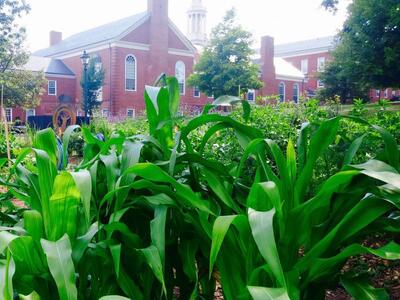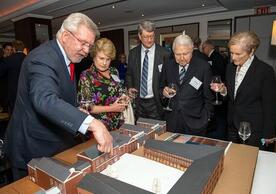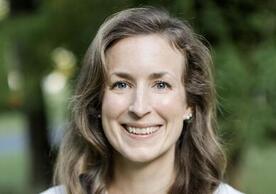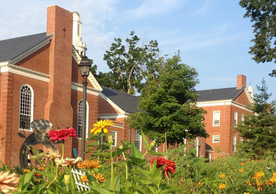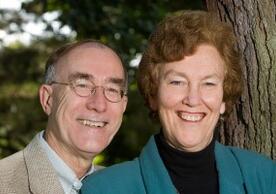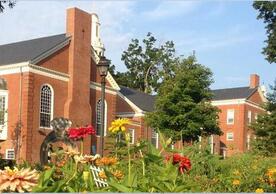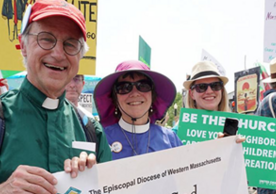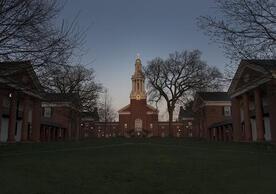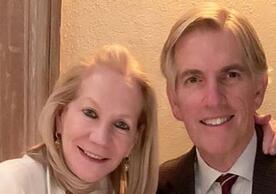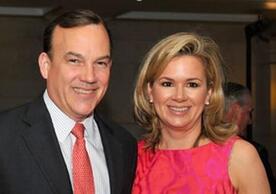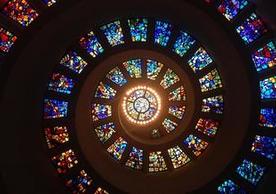As Yale Divinity School begins its third century, Dean Greg Sterling has announced a multi-dimensional initiative to make sustainability, i.e., care for God’s creation, an integral component of students’ education and their experience of YDS inside and outside classrooms. The goal, Sterling says, is to inspire and equip students to become “apostles of the environment.”
The initiative includes the following components:
Faculty and the Curriculum
YDS currently offers two academic programs directly related to the environment: an M.A.R. concentration in Religion and Ecology and a joint-degree program with the Yale School of the Environment. In addition, faculty in the field of ethics offer courses on the environment, and all faculty members are urged to incorporate issues of environmental stewardship in their courses when it is directly relevant.
YDS has succeeded in raising funds for a new faculty position devoted to religion and ecology—a professor who advises students in the current programs, serves as a liaison to the School of the Environment, and helps lead efforts to promote environmental concerns.
Extra-Curricular Programs
Several extra-curricular programs help prepare students for environmental work inside and outside the church world. These include two student groups, Common Ground and Divinity Farm. The former is a faith-based group that promotes concern for the environment and helps organize an annual student conference on environmental issues. Members of Divinity Farm grow food for themselves and fellow students, and the large garden also serves as a site for work sessions, trainings, and social and worship gatherings. The group promotes sustainable practices.
Sustainability is also a theme in each year’s invited lectures. A new fund will support an annual lecture or conference focused on the environment and related justice issues, with an emphasis on interdisciplinarity and working with Yale’s Law School and School of the Environment.
Two endowed lectures in 2022-23 were focused on sustainability. Jason McLennan, creator of the Living Building Challenge and a consultant to Divinity School’s Living Village project, gave the Sorensen Lecture in January. The Hoskins Visitor in February was Talitha Arnold ’80 M.Div., pastor of a church in New Mexico that has had a significant impact on sustainability efforts in the high desert plains of the Southwest.
The Living Village
Culminating years of planning and fundraising, the Divinity School is now constructing its history-making Living Village, which Dean Sterling describes as the most important built structure at Yale University for the environment. By generating more energy than it uses, the regenerative student residential hall, set to open in August 2025, will set a new standard at Yale and for the higher education sector, challenging other colleges and universities to use sustainable design themselves in future dormitory construction.
The Living Village will be more than a building. The students who reside there will learn through their participation of the operation of the building, helping regulate the temperature, caring for the water treatment facilities, and monitoring the solar roof shingles and the energy they generate. Students will also be trained to serve as guides to visitors and tourist groups
In addition, YDS plans to hire a Living Village building manager who will direct programming that turns the facility into a learning laboratory and helps equip YDS students to become environmental leaders in their lives after YDS.
Regenerative Living
From operations to food practices to Divinity Farm, YDS is committed to aligning campus life with the imperative to live in harmony with nature, and to give back to the environment more than we take.
As part of an ongoing effort to incorporate sustainability in the operation of the school, YDS has reduced the use of paper by a significant margin, converting many paper resources, including records and key publications, into electronic formats. All materials in the campus eatery, The Refectory, are compostable and recyclable; utensils, for example, are made from corn.
To offset the cost of faculty and staff business travel, the Divinity School assesses a carbon tax: $50 on every domestic trip and $100 on international flights. The funds are pooled and applied to projects or resources that advance sustainability. One such project was the installation of water-filling stations at drinking fountains, aimed at drastically reducing use of bottled water.
Personal and instituitional practices will continue to evolve once the Living Village campus residence opens to students.
Library collection
YDS plans to create an extensive collection in its library focused on the relatively new field religion and ecology.
